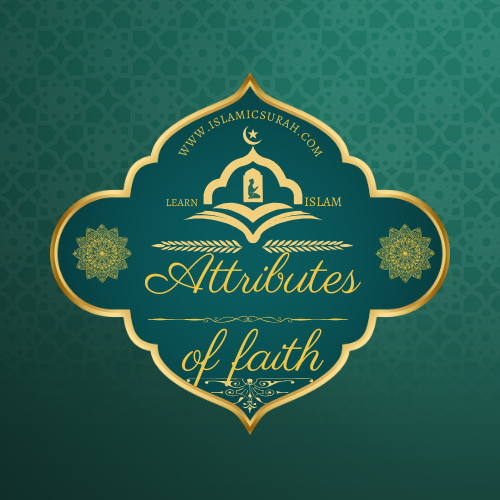The Qur’an is the final revelation from Allah, offering guidance, commandments, principles for human life, and avenues for social reform through its various surahs and verses. A significant verse in this Holy Book known as “Ayat e Karima” holds a special significance. The significance of Ayat e Karima is profound, particularly in the context of the Hazrat Yunus’ s story.
What is Ayat Kareema?
Ayat Karima is a profound verse that beautifully encourages repentance for sins and inspires gratitude towards God for His blessings. Another important aspect is that Ayat al Karima serves as a heartfelt prayer, seeking forgiveness and divine protection for the reciter. This serves as a profound testament to Allah’s mercy and forgiveness, as He accepts and pardons the repentance of His servants. Ayat e Karima in Quran is located in the 17th Para (Juz) , within the 87th verse of Surah Anbiya.
وَ ذَا النُّوْنِ اِذْ ذَّهَبَ مُغَاضِبًا فَظَنَّ اَنْ لَّنْ نَّقْدِرَ عَلَیْهِ فَنَادٰى فِی الظُّلُمٰتِ اَنْ لَّاۤ اِلٰهَ اِلَّاۤ اَنْتَ سُبْحٰنَكَ اِنِّیْ كُنْتُ مِنَ الظّٰلِمِیْنَ(87)
Ayat e Karima in English
La ilaha illallah Anta Subhanaka Inni kuntu Minazalimeen
The Context of Ayat-e-Karima
Ayat e Karima is found in Surah Al-Anbiya, verse 87, recountes the story of the prophet and caller, Yunus (Jonah). This verse recounts an incident involving Yunus (Jonah). The event was that Prophet Yunus (peace be upon him) called his people to the way of Allah, but they did not respond to his call. However, Prophet Yunus (peace be upon him) persisted in his invitation.

In Ayat Kareema, Allah mentions that He punished Prophet Yunus (peace be upon him) when he became impatient. He stayed in the belly of a fish for forty days, after which he sincerely repented. Prophet Yunus (peace be upon him) prayed in solitude, calling upon Allah in the darkness. In his prayer, he sought forgiveness not only for his own sin but also for those of his people.
And remember Jonah, when he went away in anger and thought that We would not restrict him, so he called out in the darkness, “There is no deity except You; exalted are You. Indeed, I have been of the wrongdoers.”
Ayat e Karima benefits
Following are the rewards and Ayat e kareema benefits:
Tauheed and Ayat-e-Kareema
The belief in Tauheed opens the gates of Paradise, honoring Allah as transcendent and supreme above all else. This belief grants humanity a blessed vision of Allah, regarded as the most sublime prayer. The opening phrase of Ayat al Kareema is ‘La ilaha illallah,‘ which translates to “There is no deity except You” or “There is no one worthy of worship except You.”
Allah’s Glory in Invocation
Moreover, the second part of the Ayat a Karima is “Anta Subhanaka”, which means Glorified be You. When seeking help from anyone, they are typically praised for their qualities. Similarly, when seeking Allah’s assistance, it’s crucial to acknowledge His glory and glorify Him alone.
Significance of ‘Inni kuntu Minazalimeen’ in Ayat e Karima
The third part, ‘Inni kuntu Minazalimeen’, signifies “Verily, I have been of the wrongdoers.” It is essential to invoke this phrase when seeking assistance from Allah Almighty. When a person acknowledges their wrongdoing, they understand the pain and hardship it causes, leading Allah to punish them. Reciting Ayat e Karima increases the prayer’s likelihood of acceptance and brings relief from troubles and worries.
A Divine Promise of Accepted Prayers
Sa’d ibn e Waqas narrated: “The supplication made by the Companion of the Fish (Prophet Yunus (AS)) in the belly of the fish was
لَّاۤ اِلٰهَ اِلَّاۤ اَنْتَ سُبْحٰنَكَ اِنِّیْ كُنْتُ مِنَ الظّٰلِمِیْنَ
If any Muslim supplicates with these words, their supplication will be accepted/responded to.”
Ayat e Karima 313 times benefits
Reciting Ayat-e-Karima 313 times is believed to:
- Alleviate distress and anxiety.
- Remove obstacles from one’s life.
- Attract divine blessings and mercy.
- Strengthen one’s faith and connection with Allah.
- Provide protection from negative influences.
Ayat e Karima ki Fazilat
Sa’at Ibn e Malik narrated: “I heard the Prophet SAW saying, ‘Shall I not inform you about Allah’s Greatest Name (Isme Azam)? When dua is invoked with it, it is accepted and what is asked for is given. This is the supplication through which Yunus AS called upon Allah from within the belly of the fish: La ilaha illa anta, Subhanaka, Inni kuntu minaz-zalimin (There is no god but You, You are far exalted and above all weaknesses, and I was indeed the wrongdoer).’ A man asked, ‘O Rasulullah, is this dua special for Yunus AS or for all believers?’ The Prophet SAW replied, ‘Have you not heard the words of Allah in the Quran: “And We delivered Yunus (AS) from his distress, thus We grant deliverance to all believers” [Quran].’
Another narration from Prophet Muhammad (PBUH) states: “When a Muslim supplicates with these words during illness forty times, and if death occurs due to that illness, He is granted the reward of a martyr. If recovery follows, all their sins are forgiven.”
FAQ’s
Ayat Kareema dua is located in the 87th verse of Surah Al Anbiya (21st chapter) in the Quran.
It is recommended to recite Ayat-e-Karima at least 125 times per day, or as many times as possible.It’s best to choose a specific time of day for the recitation.
Ayat e Karima is part of verse 87 in Surah Al-Anbiya of the Holy Quran, also known as the “Verse of Honor.” Muslims believe it is a short but extremely powerful dua. Those who recite this prayer during difficulties are blessed with Allah’s mercy and blessings.

